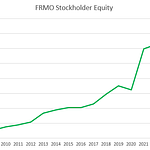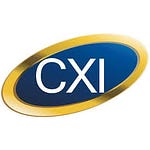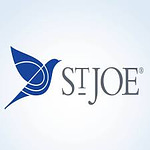Welcome to Special Situation Investing Episode 69.
For reference, this episode was published on 18 March, 2023, a time which has proved volatile for most stocks to include, Texas Pacific Land, the subject of today’s episode. TPL’s recent decline struck us as worthy of another episode because we’ve been so bullish on the company in the past and because the issues surrounding its recent price decline are complicated and obscure.
For context, shares of TPL rose to record highs of over $2,700 per share at the end of 2022 only to fall steadily back into the $1,500 dollar range today. Looking back, it would be easy to attribute TPL’s drop to a steadily declining oil price, and that most certainly has played a part, but we believe there is more to the stock’s price drop than simply a correlation to oil.
To begin, shares of TPL started their slide shortly after the company initiated legal proceedings against its largest shareholder group. Suing your own shareholders is a rare trick in corporate America but not even this singular event fully explains what’s happening behind the scenes. To fully understand the situation, we must go back to the company’s founding and work our way, quickly, to the modern day.
Texas Pacific Land Corp, as we know it today, began its journey as a trust formed in the aftermath of the 1888 Texas and Pacific Railroad bankruptcy. Three and a half million acres of land were placed in a trust for the benefit of the company’s bondholders and the trust spent the better part of the last 130 years paying a small dividend to its shareholders and buying in its own stock. For the purpose of today's discussion, understanding the exact nature of the company’s business operations isn’t as important as understanding the company’s governance structure.
Historically, TPL was controlled by three trustees who were, in effect, appointed for life. The trust did not hold regular meetings, elections, or solicit advice from the trust’s unit holders but rather continued selling land, collecting mineral royalties, paying a small dividend and buying back its own units devoid of owner input. Flawed as the trusts corporate governance may have been, the trust’s unit holders were still handsomely rewarded, as the quality of the royalty business model along with the utility of the underlying property overcame many of the challenges brought on by a lack of trustee accountability.
TPL continued in the manner just described until it was noticed by the senior analyst of a company called Horizon Kinetics (HK). Founded in 1994, HK is a New York based private investment firm that prides itself in independent and value-oriented thinking. One of the firm’s first and longest held positions is Texas Pacific Land which it began to acquire for under $10 per share and has continued to purchase all the way up through last month. In total, HK amassed more than a 20% stake in the multi billion dollar company and would likely still be adding to their stake were it not for an outside limit placed on their ownership. More on HK’s external limitations shortly but first let’s continue our chronology up to the present day.
Following HK’s “discovery” of and growing stake in TPL the next significant event on our timeline comes in 2019. In that year, one of TPL’s three lifelong trustee seats opened up and prompted HK to nominate Mr. Eric Oliver for the position. HK contented that their nominee was an excellent candidate for the job given his extensive oil and gas expertise along with his cartological knowledge of the Permian Basin. HK contrasted their nominee with the two sitting trustee’s nominee, Retired Gen. Donald Cook.
Without impugning the general’s character, HK simply highlighted their candidate’s qualifications against those of an honorable, albeit oil and gas inexperienced, man. The contrast between the two nominees was further illustrated in that Gen. Cook held no significant stock in the company while Mr.Oliver, who headed up SoftVest Partners, represented a 4% stake in TPL. That HK and SoftVest’s combined 25% stake in TPL was purchased in the market versus granted through stock options further highlighted both organizations’ vested interest in the company’s success.
HK, SoftVest, and TPLs two incumbent trustees spent most of 2019 in a proxy contest and when it became evident that Mr. Oliver would be elected to the third trustee position the incumbent trustees filed a lawsuit against Mr. Oliver in the Northern District of Texas alleging disclosure abuses. Specifically, the trustees alleged that Mr. Oliver was guilty of violation of section 13(d) and 14(a) of the Securities and Exchange Act of 1934 relating to the 2019 Proxy Fight.
Rather than delay the trustee vote, both HK and SoftVest, collectively known as “the shareholder group”, completed the vote and counter sued TPL’s board. They alleged that the trustees had breached their fiduciary duties, were guilty of gross negligence, had mismanaged the trust’s assets, committed waste, and partook in rampant undisclosed conflicts of interest.
Finally, in July of 2019 the shareholder group and TPL entered into a settlement agreement. Under the settlement agreement three additional members joined a conversion committee tasked with exploring whether or not the trust should convert to a C-corporation. General Donald Cook (Ret), Mr. Eric Oliver, Mr. Murray Stahl, and Mr. Dana McGinnis along with incumbent trustees Mr. John Norris III and Mr. David Barry formed the committee.
In 2020, TPL announced that it would begin the process of converting from a trust to a C-corporation and the conversion was completed in January of 2021. Following the conversion, TPL installed a nine-member board without a shareholder vote, as the two incumbent trustees effectively controlled the company and could nominate, with only a few exceptions, whoever they chose.
Another relevant fact, related to the companies C-corp conversion, is the classified board structure. In essence, board members only come up for reelection every three years, with three of the nine board members up for reelection in year one, another three up for reelection in year two, and a third group up for reelection in group three. Groups, are refereed to as class I, II, or III based on the year they are up for reelection.
In addition to this odd board structure, class III board members can only be dismissed for cause, where cause means that the member is deemed mentally unfit by a court, has committed some gross violation of their fiduciary duty, or is convicted of a felony. Interestingly enough, each of the two legacy trustees appointed themselves as class III board members upon TPLs trust to C-corp conversion. Essentially, the incumbent trustees wouldn’t be up for board member reelection for three years following the C-corp conversion and even if they failed to garner the requisite votes for reelection could continue to serve as board members for many years into the future.
Other oddities of corporate governance followed from the 2019 shareholder agreement and eventual C-corp conversion. Among them was a restriction on HK’s ownership of TPL which placed a 23.5% limit on their holdings. This is curious given that large insider ownership, purchased in the open market, is typically understood to align management and shareholders. In fact, TPLs incentive plan alludes to this very fact and cites it as justification for granting stock options to management, stating that “it is in the best interest of our stockholders for our directors to maintain a significant ownership position in TPL to create substantial alignment with our stockholders.” The only difference between the SoftVest, HK and management is that SoftVest and HK purchased their combined 25% stake in the open market and management received their nominal stake via a compensation arrangement.
This timeline brings us to last year when TPL’s management proposed a stock issuance and three-for-one share split to the company’s shareholders. Specifically, management proposed increasing TPL’s authorized common shares from 7,756,156 to 46,536,936 shares, a 6x increase in the share count. Presumably, the first 50% of these shares would enable the three-for-one stock split and the remaining shares would be available for compensation and acquisitions.
At this point, we will depart from the historical record and speculate as to management’s motivation. To date, management has demonstrated a lack of transparency coupled with a willingness to use company resources for their own compensation and legal defense. Alternatively, the shareholder group displayed a long term owner oriented track record along with skin in the game.
Management’s motives become increasingly clear when the next fact is introduced to our timeline, namely that once the shareholder group stated its intention to vote against the share increase management, again, took legal action against them. This is also the point where TPL’s share price began its inexorable decline.
According to management, the shareholder group is obligated to vote their shares in accordance with board decisions. In effect, and with few limitations, they believe that SoftVest and Horizon Kinetics must vote their significant stake in the company in accordance with the majority of TPL’s board, a board who themselves have amassed only trivial amounts of the company’s stock.
If the share increase is approved several possibilities will logically follow. First, management and the legacy board members will almost certainly increase their own compensation via option grants. Second, management will likely use the shares as currency to fund empire building acquisitions sprees. Not only would stock options and acquisitions boost managements ego but they would dilute existing shareholders.
Shareholder dilution is bad for owners in general but in this case management’s dilutive actions may be very specifically targeted at SoftVest and Horizon Kinetics. Consider the fact that SoftVest and Horizon’s board seats are contingent on several factors not least of which is what’s referred to as the “minimum ownership event”. Put plainly, when the shareholder groups ownership falls below 10% of the company the board is authorized to accept both members pre-submitted letters of resignation. This provision stems from another TPL imposed shareholder group restriction.
For management, what is the downside of increasing their compensation, going on a resume building acquisition spree, and diluting their largest shareholder? Especially when, from their perspective, their largest shareholder is also their most troublesome shareholder and the aforementioned action removes that same shareholder group from the company’s board or directors.
A combination of infighting and legal actions just described are, in our opinion, the primary driver behind the stock’s recent fall. Secondary reasons include a declining oil price and possibly a drop in buying pressure. Near the end of last month, Horizon Kinetics stopped its daily purchase of TPL stock, a purchase program which had been exercised daily and without fail for years. These programmatic purchases created a small but steady price insensitive buying pressure on the stock. We speculate that HK stopped purchasing TPL shares when they hit the 23.5% ownership limit outlined in the 2019 TPL/Shareholder group settlement agreement. This massive ownership stake is the very same collection of shares that management would like to dilute below 10% in order to trigger the minimum ownership event.
With all of this doom and gloom out of the way why are we still excited about the company and what is our desired outcome? Initially, we hope that Horizon Kinetics and SoftVest are allowed to vote their shares independent of any board decision and this issue will be addressed in court on Monday April 17th. If the court decides in the shareholder groups favor it will halt TPLs ill-conceived share increase proposal and take us one step closer to rational management of the company.
Next, we would hope that several additional shareholder proposals are passed and implemented at TPL’s 18 May annual meeting. Some of the pro-shareholder proposals include board declassification, the ability to remove board members by vote and not just for cause, provisions to enable shareholders to call for special meetings, along with several others. Each of these proposals would assist the shareholder group in their effort to bring long term owner operated and transparent governance to the company. While the situation appears bleak today, HK’s track record gives room for hope as their past efforts have proven successful and they’ve steered the company in a positive direction so far.
Specifically, HK was instrumental in TPLs C-corp conversion efforts and its commensurate move toward modern governance. HK further influenced the company by drawing in a well informed shareholder base, a base that is far more engaged with the company than is the norm in corporate America. In fact, TPL’s well informed shareholder base was key to the resignation of Mr. Dana McGinnis who after not receiving enough votes to ensure his reelection subsequently resigned his position. Technically speaking he could have continued as a company director without the requisite votes but the overwhelming lack of support for his continued service resulted in his resignation and one more positive change for TPL. Again, the positive changes at TPL are very much tied to an engaged base of shareholders led by Horizon Kinetics and SoftVest who themselves have a massive financial stake in the company’s future. It is because of this proven track record that we are hopeful of their continued success.
Easy though it may be to get wrapped up in short term governance drama it’s beneficial to remember just how valuable an asset TPL is. As one of the largest landowners in the Permian Basin with extensive mineral rights, the company is set to prosper for decades. The Permian is likely the largest oil deposit in the United States and thus represents innumerable profit opportunities in the years to come. This world class asset and its low cost operating model aren’t likely to be stopped by a short term governance issue and it is for that reason that we remain excited about TPLs future prospects.
Thanks for listening and we’ll be back again next week with another episode.
SUBSTACK-ONLY BONUS
Here’s five of our favorite podcasts from the last week.
Doomberg on Real Vision Daily Briefing
Harris Kupperman on Forward Guidance
https://blockworks.co/podcast/forwardguidance/6ad5eb32-c448-11ed-a7f8-6f678306e1f6
Lyn Alden on Forward Guidance
https://blockworks.co/podcast/forwardguidance/555b425c-c36c-11ed-a536-a734d6312883
Jack Spirko on The Survival Podcast
Luke Gromen on Macrovoices
https://www.macrovoices.com/1183-macrovoices-367-luke-gromen-usd-update-in-the-wake-of-svb-collapse














TPL's governance battle (TPL)